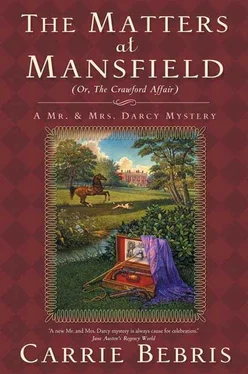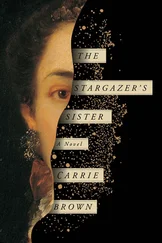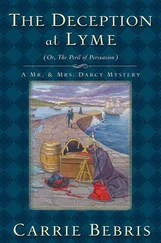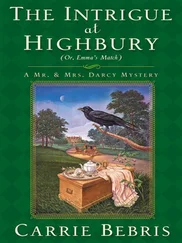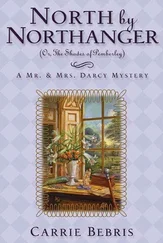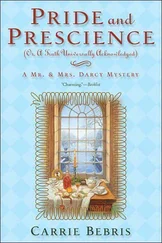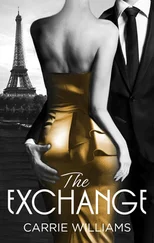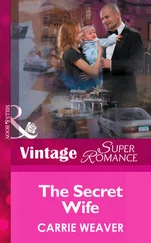“The materials could have been taken from here after the fact,” Colonel Fitzwilliam said. “Or a second pistol, loaded at the same time — or at least with the same distinctive patches — was used.”
“How can you say there might have been a second pistol?” Sir Thomas said. “Both patches match the unique rifling of Mr. Crawford’s weapon.”
“It is distinctive but not necessarily unique,” said Colonel Fitzwilliam. “Mr. Crawford’s pistol could have been commissioned as part of a cased set.” It was not uncommon for pistols, particularly custom weapons, to be sold in matched pairs, ostensibly for duels. If a contest of honor was not settled in the first round, the well-prepared owner then had an ancillary pistol at the ready so as not to suspend the duel in the heat of the moment to spend five minutes reloading. Not all cased sets were purchased in anticipation of actual duels; as with other goods collected by the wealthy, if owning one pistol was desirable, owning two was better still, and most pairs were used for improving one’s skill at target-shooting rather than defending one’s honor, if they were ever fired at all.
“Whether Mr. Crawford’s pistol has a twin, or is a single pistol that was fired and reloaded, something — the loading supplies or the second weapon — is missing from this grove that had to have been present at the time of Mr. Crawford’s demise,” Darcy said. “Which means someone else was in this grove before Mr. Crawford was discovered, and took with him the loading materials or the matching pistol. Either way, this individual was somehow involved in whatever event ended Mr. Crawford’s life. I should think that constitutes sufficient evidence to cast reasonable doubt on the probability of suicide.”
Sir Thomas stared at Darcy a long moment. At last he turned to the coroner. “What are your thoughts on the matter, Mr. Stover?”
“I am no longer confident in a suicide ruling. I will hold the inquest as planned; if no other information comes to light during it, I shall simply state the cause of death to be a close-range gunshot to the head, and the investigation into how that shot came to be fired can proceed from there.”
Sir Thomas appeared disappointed. “I had hoped this matter would be settled by your report. But very well. At least I shall be able to ship Mr. Crawford’s rotting remains out of Mansfield and back to Norfolk. Everingham is welcome to them.”
“Do not deceive yourself into a belief that I will ever recede. I shall not go away, till you have given me the assurance I require.”
—
Lady Catherine, Pride and Prejudice
Mr. Archer had always reminded Elizabeth of an undertaker. However, she had assumed the solicitor’s undertakings were aboveboard.
Now she was not quite so certain.
As Elizabeth descended the stairs in search of Meg, who had not yet been informed of her husband’s death, she contemplated Lady Catherine’s solicitor more seriously. Of all the people she and Darcy had discussed as having motive for Henry Crawford’s murder, they had avoided the mention of one who almost certainly had wished him dead.
And Mr. Archer worked for her.
The thought that Lady Catherine had instructed her solicitor to eliminate her daughter’s seducer was absurd. Was it not? Darcy’s aunt was a titled aristocrat. The daughter of an earl. A landowner in her own right, a patroness of — well, of Mr. Collins, the realm’s most obsequious clergyman, but a patroness nevertheless. She might be domineering, she might think herself infallible on the subject of what was best for everybody else, she might be in the habit of bullying everyone around her until she got her own way. But such people as her ladyship — ladies with a capital L and the pedigree to support it — did not go round orchestrating assassinations.
Unless they were provoked beyond reason.
And Lady Catherine had every reason. Henry Crawford had not only interfered with what she had considered a very desirable marriage contract, he had destroyed Anne’s chances of ever receiving another. Darcy’s aunt had been incensed from the moment she learned of the elopement, and her ire had only grown as the magnitude of the damage compounded. Perhaps she had indeed surpassed reason.
Elizabeth suspended her musings for a moment to enquire after Meg. Mrs. Garrick had last been seen heading for the livery. Whatever for, Elizabeth could not imagine, but she followed the direction nonetheless.
She found Meg in the stable, deep in conference with Charleybane. She stood just outside the Thoroughbred’s stall, stroking the animal’s marred face and speaking in low, lulling tones. The horse leaned its head toward her hand.
Elizabeth was reluctant to interrupt — this was the most content she had ever seen either the mare or the woman, but the news she bore could not be postponed, and Meg deserved to hear it from a sympathetic teller.
“Meg?”
Meg turned. “Mrs. Darcy. I was just—” She glanced back at the Thoroughbred self-consciously. “I was just visiting John’s — Mr. Crawford’s — horse. I thought she might be missing her owner.”
“Are you missing her owner?”
“I—” She shook her head and shrugged. “I do not know. I doubt I can ever forgive his betrayal, but all the same, he is my husband, and with each passing day since Charleybane’s return, I fear more for his safety.”
Elizabeth wished she had a better report to offer. “He has been located.”
Relief lit Meg’s features, but for only a moment. Then a look of doubt set in. “You have left something unspoken — I can hear it in your voice. Was he found with yet another woman?”
“No. I am afraid he was found dead.”
Meg blinked rapidly and swallowed — twice — before speaking. “I feared as much. How?”
“He was shot. The coroner is determining whether by accident or intent.”
Charleybane nickered. Meg turned and absently stroked the mare’s face while she composed her own. The intelligence had clearly taken her by surprise. So, apparently, had her grief. She wiped her eyes with the back of her hand.
Elizabeth offered her a handkerchief. “I am sorry to be the bearer of such news.”
“I am sorry to be the recipient of it.” She dabbed the tears and returned the handkerchief. “Now that he is gone, I do not know what I shall do.”
“As his widow, you might attempt to petition the courts for dower rights. Even if you receive merely a portion of his personal property, that ought to help support you. This horse alone is worth quite a sum, despite her injury.”
“I cannot afford to keep a horse, let alone petition the courts for anything. I cannot afford my room at this inn.”
“Do not distress yourself over the room at present.”
She shook her head. “That is most generous of you, but I shall find a way to manage for myself.” She stroked the horse’s mane. “In the meantime, I believe I shall take Charleybane out for some exercise. Perhaps the ride will help organize my thoughts.”
Elizabeth left Meg with the mare and went back toward the inn. As she neared the door, Mr. Archer emerged. He nodded brusquely and continued past her, heading for the stables. She followed him with her eyes, her earlier reflections returning to her mind. Where had Mr. Archer gone when he rode off on the night of Mr. Crawford’s disappearance? Had he discovered Henry and dispatched him, then returned to report his search unsuccessful?
There was one way to find out. Probably more than one, but today Elizabeth preferred the direct approach. The challenge would be obtaining the information she sought without revealing her suspicions. She retraced her steps to the livery, rapidly inventing and then discarding means of phrasing the questions she wanted to ask, and hoping inspiration would reach her before she reached him. She expected to find him just within, arranging with the ostler the hire of a mount or post-chaise — for what else would take him to the stables? — but he was not immediately inside. Nor were the ostler or his stable hands.
Читать дальше
